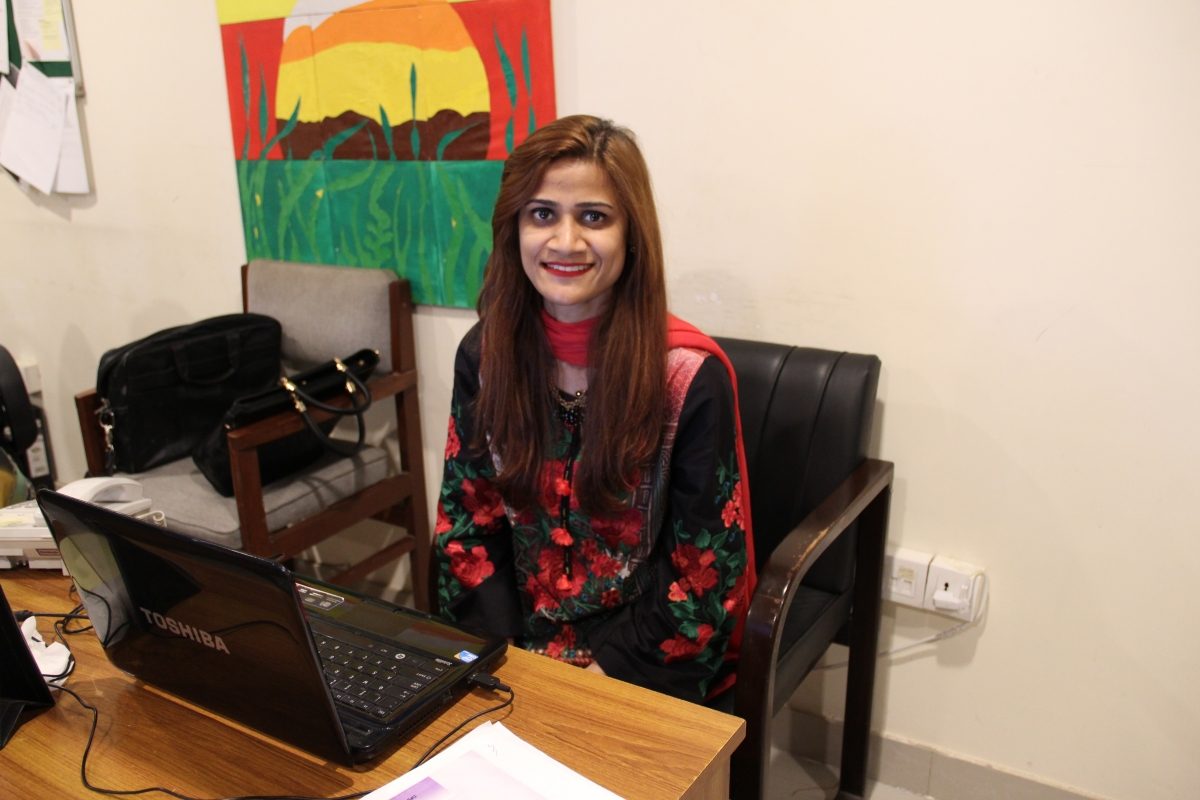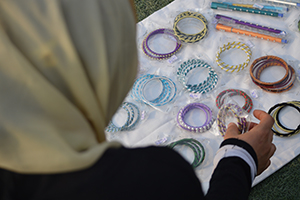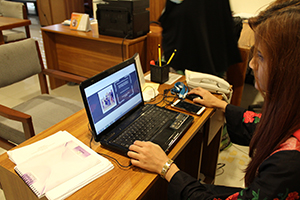Seeing a Child of Her Own in Every Refugee Child: Saira, Child Protection Officer

A compassionate, dynamic leader, Saira Bukhari spearheads the ICMC Pakistan’s response to Child Protection activities of the UNHCR-funded project, which serves refugee victims of violence and other vulnerable individuals in need of protection.
Before joining the ICMC team in February 2014, Saira served as Programme Officer of ICMC’s partner Society for Human Rights and Prisoners’ Aid (SHARP), through which ICMC provides refugees with free-of-charge legal advice. Combining a Master’s degree in Politics and International Relations with experience in monitoring and reporting, Saira hoped that learning new protection skills will provide her with an opportunity to contribute to alleviating the refugee crisis and facilitating unaccompanied refugee children. In addition, this would give a bigger scope to her career, given the many unreported cases of family separation, exploitative child labor, violence and abuses in the country. “Initially, I felt I could do it even though I was worried this new job could negatively affect my career path,” she admits. “Eventually, I proved myself wrong.”
As part of her daily duties at ICMC Pakistan, Saira assists UNHCR in referring refugee children for resettlement or for the most appropriate durable solution while ensuring that the best interests of the child are represented. She interviews unaccompanied minors and separated children, drafting thorough reports and passionately advocating for their interest before decision-making panels.
Saira also serves as the child protection focal person for the ICMC-managed safe shelter. On a weekly basis, she visits the safe home residents to lead counselling and awareness raising sessions as well as organize recreational activities for the children.
It was at the safe shelter that two years ago Saira met Parisa*, a 19-year-old from Afghanistan, who was bedridden for six months due to a grave illness. Not only has ICMC provided Parisa with the medical and psychosocial support she needed during the long yet steady recovery, but the office also signed her up for a free beauty training course to empower her to rebuild her life. In the beauty parlor where she currently works, Parisa set up a desk to sell custom handmade products like colorful bangles and fine wall-hanging decorations she crafts herself, inspired by an abundance of beautiful discarded materials.
Saira and Parisa have become good friends, and the young Afghan refugee often visits the office, although she no longer lives in the safe shelter. The officer conducted Parisa and her siblings’ best interest determinations and advocated for their resettlement as the most viable durable solution before a panel. As a result, their case was considered for resettlement by UNHCR and it’s currently awaiting final decision.

“I still remember that after I interviewed Parisa, she asked me for a hug and said that ‘sometimes all you need is someone who would listen to you,’” Saira continues. “It was the very first time that she felt comfortable expressing her thoughts and emotions freely, discussing the tough life circumstances she went through”.
Always on the lookout for innovative ideas to better assist refugee children, Saira recently set up a Child Protection Committee in one of the private schools in Islamabad – the first of its kind – to monitor protection issues facing refugee children. The feeling that children’s lives get better because of one’s work is tremendously motivating for the officer who comments: “I do not really see it as a job. I rather consider it as part of my lifestyle”.
Fellow staff describe Saira as “the mother of every refugee child”. Upon hearing this, Saira smiles, disclosing the serious concerns she has for all children – be they refugees, relatives or simply children she meets in the street. “I look at every child with a protection lens,” she eagerly relates. “And every time I assist children coming out of deplorable conditions, I feel a great sense of achievement”.

Despite hosting one of the world’s largest refugee populations for over 40 years, Pakistan is not a State party to the 1951 Refugee Convention and its 1967 Protocol, and it has not yet adopted any national refugee legislation. “The country still lacks adequate services in this matter, and refugees feel helpless, experiencing all kinds of problems, including strong language barriers and access to health or education services,” Saira points out.
Pouring her heart out into the conversation, Saira notes, “I came to see refugees as self-reliant people who were just like me before their country experienced deadly conflicts”. She argues that “at a global level, everybody is well aware of UNHCR’ mandate, but it’s key to remember that non-governmental organizations like ICMC support UNHCR’s work and ultimately enable governments to effectively address the protection needs of refugees as well as of other displaced communities”.
*Beneficiaries’ names have been changed to protect their identities.